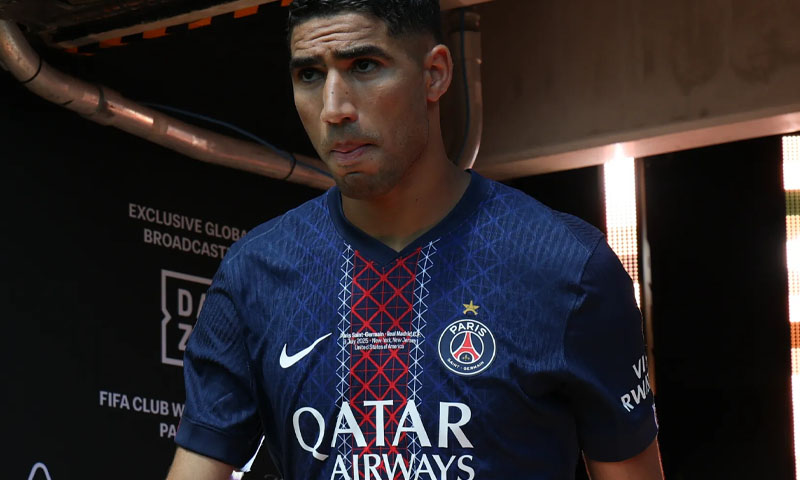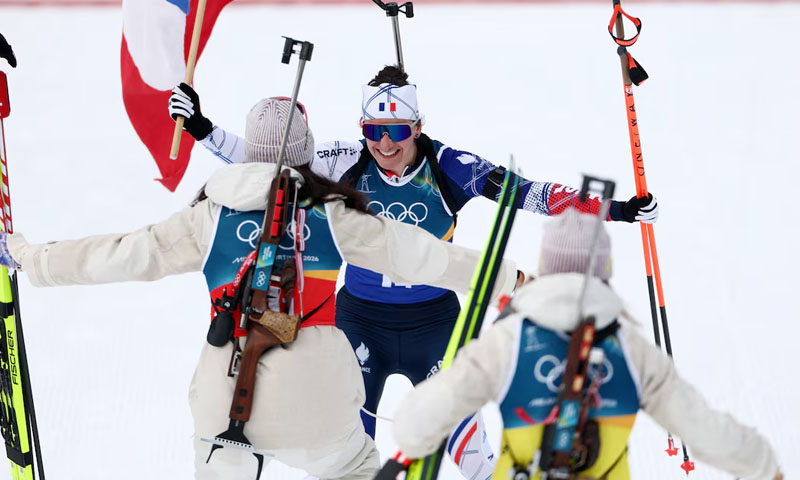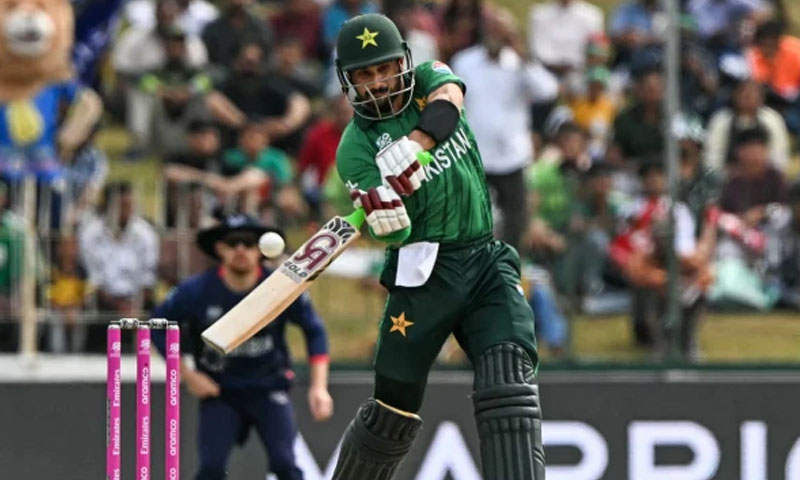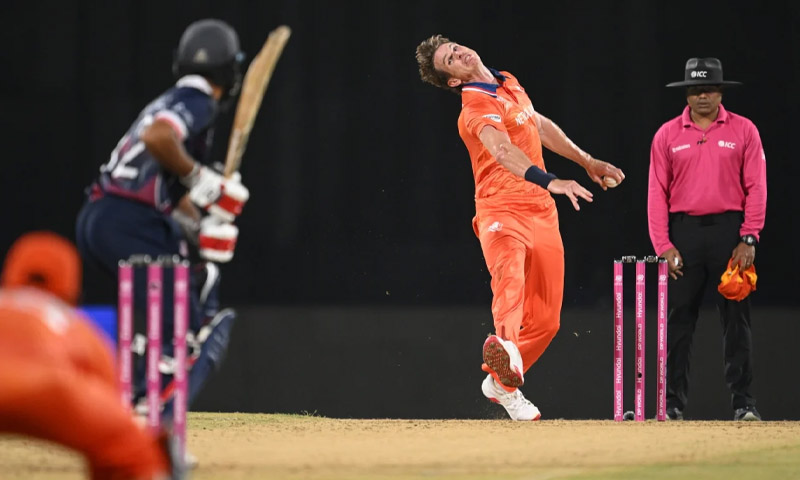- Web
- Feb 24, 2026
Titanium plates and tested patience: Kashmir’s Saria Khan returns to the cage
-

- Ahmad Afzal
- Jul 29, 2025

On July 12, Saria Khan entered the cage for the first time in a long time. And it was to be her most intimidating bout yet. Not because her opponent presented a novel threat. But because the last time she left the cage, she did so with a broken jaw. An injury she sustained in the first round, but one she gritted through and fought in spite of till the end of the last.
The injury would mean two surgeries, and a long time away from the sport.
If the physical pain of titanium plates restructuring her face wasn’t enough, the mental struggles of being out of the cage added another layer of dismay. For training had become an essential part of Saria’s routine, and a pivotal part of her life.
MMA as a teacher
“MMA honestly was a saviour for me. The day I started doing it, literally within a few months, I started seeing so much change in me.”
Growing up, Saria had to deal with a slew of health issues. Time and time again she would get sick, and time and time again, she would end up in the hospital. Repeated hospitalisation and the perpetual need for medication took its toll on Saria mentally. And that’s where MMA came into her life and made a lasting change.
It wasn’t a miracle. Her health issues didn’t vanish. But her time training MMA built up a tolerance to fight back. And when life became too much, it served as an escape. Saria has lost many in her life to cancer, including her father and more recently, a close friend. The people she calls “the real fighters in my life.”
“I remember the day I lost my father. After a few days, I was in the gym. I was training. I used to cry my heart out during the training, but it was the only escape.”
The rising tide lifts all boats: Daniyal Mirza and Pakistan’s growing sports ecosystem
Training was Saria’s way to tackle grief. It reminded her that she had to live. That she was living for a purpose. The sport made Saria independent, instilled discipline, and raised her confidence, bringing her to a good space both physically and mentally.

Saria as a student
So staying away from it all was tough to say the least. However, that didn’t mean Saria succumbed to despondency. Rather the opposite. Maybe it was because of that discipline the training instilled. The persistence needed to be successful. Regardless of what it was, Saria took the year and half off as a learning experience.
“It was just a journey of every other day. Just getting up with that injury, with the pain, with a lot of other aspects that came along with it.”
Saria explained that it taught her patience, to “go with the flow.” No longer was she on a tight schedule, pressed to rack up accomplishments by a certain age. No longer was it about the fame. It was about being better than she was yesterday.
“It’s not just about proving that you’re better than your opponent or you’re better than anyone else in the field. It’s more about being better every other day.”
The time off seemed to be just what Saria needed to evolve. The pressures she was putting on herself, the need to prove herself. It all dissipated. It wasn’t just about embracing the competition anymore, but the sport itself.
Also read: Samar Khan and the snowstorm at the summit
Return to the cage
Even with all the lessons she learned, the new approach to the sport she embraced, returning to the cage was no less difficult. In fact, it was likely tougher than many would expect. For she was re-entering that same cage, at the same event, in which Saria had suffered the injury that side-lined her a year and half ago.
After readjusting to the competitive nature of combat sports with an IFT grappling competition, which she won gold in, Saria was thrust into a short notice fight, giving her just 20 days to prepare before entering the gauntlet once again.
Saria still had that confidence she had built from her previous fights. She had become attuned to the pressure, the nerves that came with each bout. All the feelings she overcame each time in order to remind herself that this was her cage. Even still, there was a different flavour of fear there this time, which hadn’t been there before.
She was more conscious of herself than she had been before. More careful to not get injured again. And so, she played it safe. While it didn’t stop her from winning the fight, the split decision nature of her victory meant Saria left the cage feeling like she could have done more.
“What was lacking was confidence. I was not confident in my technique.”
However, with another victory under her belt, and that too one coming off of a serious injury, she was re-instilled with excitement for fighting. Having overcome the hurdle life put in front of her, Saria was ready for the next challenge, with even greater confidence than before.
“It’s a very good feeling that I competed. My fear is gone.”

Inspirations
As Saria continues on her MMA journey, she looks to compatriot and teammate Anita Karim for inspiration, while hoping she can do the same for girls across the country. In a sport dominated by men, Anita took a step that no other woman in the country had before and began competing internationally, winning multiple bouts in organisations such as ONE Championship.
“So I just look up to her so much, and I’m so proud of her that she’s my teammate,” Saria said, adding that “her techniques are amazing, phenomenal.”
Saria is taking a step into similarly uncharted territory, being the first female MMA fighter from Kashmir. After seeing a schoolmate in her childhood boxing, it set her off on the path she currently walks. But immediately, she encountered the barriers many women face when entering sport in the country.
“While growing up, the concept of sport in Kashmir was for females specifically, just not looked up to. Like, they didn’t want girls to play at all.”
A young Saria was advised to go to Islamabad where she could hopefully find a home to foster her interest in the sport. And with the aid of her elder sister, who introduced Saria to the head coach of Team Fight Fortress, Saria began training with the team she now calls family.
Saria’s parents helped to fund her time in the gym training, and even despite some squabbles at home over dropping grades, they remained supportive. Even if they weren’t always sure just where this passion for MMA was taking their daughter.
“It was always very questionable, whether this was something that I would be continuing or not.”
Now, Saria hopes to share some of the support she received by changing the perceptions around women’s involvement in MMA and sport more generally. Saria wants to show that in spite of the barriers one faces, and the sacrifices they have to make, that everything is still possible.
“I really want a lot of other girls from Kashmir to get into sports, to play, and to look to me as someone who did it from a very young age.”
One way that Saria is spreading awareness is through self-defence seminars across Pakistan, promoting the necessity of learning basic self-defence for women. She hopes to one day host one in Kashmir.
A Better Tomorrow
Already, the landscape is changing from when Saria first started her journey, as more women in Pakistan are competing in MMA than ever before.
“Now there are a lot of female fighters who are coming up, who are fighting from different areas, and it’s just amazing to see them doing it.”
Saria hopes she can continue to play a “small role” in promoting women’s participation in combat sports. For Saria herself, she hopes to continue readjusting to competing in the amateurs, and make her pro-debut in one to two years.
“Professional MMA is very different from amateur. It’s a level of very, very good techniques. And I think I’m good with my techniques and everything, but I have to learn a lot still.”
However long it takes for Saria to enter the next stage of her career, she has the patience one needs to keep at it, and the steeled resolve to not falter.
Also read: England women return home to heroes’ welcome after Euro 2025 win





